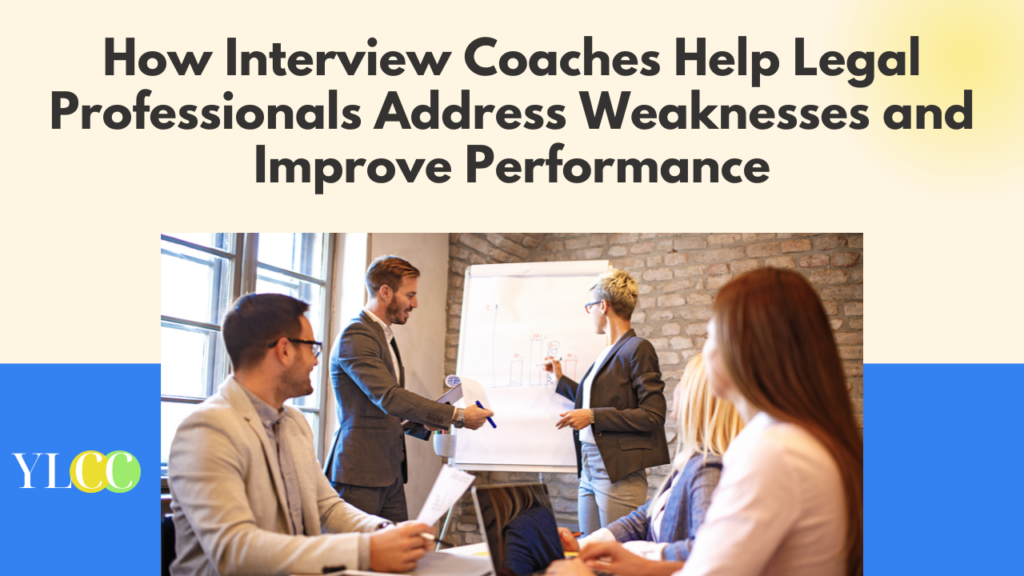
Interviews can be nerve-wracking for anyone, but for legal professionals, the stakes are particularly high. A job interview can be the difference between landing a dream job at a top law firm or missing out on the opportunity of a lifetime. Despite their years of studying law and honing their skills, legal professionals may find themselves struggling with interview anxiety and unsure of how to present themselves in the best light.
That’s where interview coaches come in. These experts in their field have a talent for identifying blind spots, recognizing unique strengths, and creating personalized strategies to help legal professionals improve their interview skills and boost their chances of success. In this article, we’ll take a closer look at how interview coaches help legal professionals address their weaknesses and improve their performance, providing practical tips and insights along the way.
Identifying Weaknesses
Legal professionals may have impressive legal skills, but when it comes to job interviews, they can struggle with common weaknesses. These might include stumbling over tough questions, rambling on for too long, or simply feeling overwhelmed by the pressure of the situation.
Fortunately, interview coaches have a variety of techniques to help legal professionals identify these weaknesses and address them head-on. One such technique is the mock interview, where the coach asks questions commonly asked in legal interviews and assesses the responses. By taking note of areas where the candidate may stumble or seem unsure, the coach can provide constructive feedback on how to improve their interview skills.
With years of experience in their field, interview coaches can quickly identify where legal professionals may be falling short in their interview skills. By offering expert feedback and practical advice, they can help their clients to refine their responses and present themselves in the best possible light during the interview process. So if you’re an interview coach looking to help legal professionals succeed in their interviews, mock interviews and personalized feedback can be powerful tools to help your clients shine.
Developing Strategies
Interview coaches play a crucial role in helping legal professionals develop effective strategies for addressing their interview weaknesses. By working closely with their clients, coaches can identify areas where the client may struggle and develop tailored strategies to help them overcome these challenges.
One key strategy is improving communication skills. Coaches may work with legal professionals to simplify their language and communicate their thoughts more effectively. This might involve practicing how to explain complex legal concepts in simpler terms, or helping the client articulate their thoughts in a clear and concise manner.
Another strategy might be to help the client better showcase their experience and qualifications. Coaches may provide guidance on how to highlight the legal professional’s unique skills and achievements, and how to present them in a way that resonates with interviewers. By focusing on specific areas of improvement, coaches can help their clients stand out in competitive job interviews.
Practicing and Role-Playing
Interview coaches have the superpower of turning their legal professional clients into interview wizards, and they know that practice and role-playing are the secret weapons to achieving that goal. By creating simulated interview scenarios and asking tough questions, coaches help their clients hone their skills and feel more at ease when facing real-life interviews. Plus, who doesn’t love a good role-playing exercise? It’s like acting out a scene from a legal drama, but with the added bonus of improving your interview skills.
But the benefits don’t stop there. Through this type of practice, legal professionals can build their confidence, develop effective communication skills, and improve their ability to think on their feet. So, when the time comes to shine in an actual interview, they’ll be ready to impress.
In addition to verbal communication, interview coaches also recognize the importance of non-verbal communication in making a good impression. By helping their clients improve their body language, eye contact, and overall presence, coaches can ensure that their clients come across as confident and capable.
And when it comes to tough interview questions, interview coaches have got their legal professional clients covered. With their experience and expertise, coaches can help clients develop strategies for answering even the most difficult questions with ease and grace.
Improving Non-Verbal Communication
When it comes to interviews, the right words are important, but sometimes it’s the things we don’t say that can make all the difference. That’s why interview coaches work with legal professionals to help them perfect their non-verbal communication game!
With body language and eye contact being key players in interview communication, coaches have an arsenal of tricks to help their clients level up. From teaching them to sit up straight to perfecting that power pose, coaches know just what it takes to project confidence and competence.
So, no more awkward slouching or shifty eyes – with the help of an interview coach, legal professionals can conquer non-verbal communication and make the right impression in any interview!
Handling Tough Questions
Interviews can be tough, and legal professionals may face a range of difficult questions that can throw them off their game. But with the help of an interview coach, legal professionals can develop effective strategies for answering these tough questions.
Coaches may work with their clients to anticipate common questions and develop compelling answers, or provide guidance on how to handle unexpected or difficult questions in the moment. By practicing these strategies, legal professionals can feel more prepared and confident in interviews.
Conclusion
Working with an interview coach can provide a range of benefits for legal professionals looking to improve their interview skills. From identifying weaknesses and developing strategies, to practicing and role-playing, improving non-verbal communication, and handling tough questions, coaches can provide personalized guidance and support to help legal professionals succeed.
YLCC would like to thank Pearl Narang for her contribution in this article.





